Do you often get asked ‘What are your new year’s resolutions?’ But have you noticed, we rarely get asked, later on, ‘How are your new year’s resolutions doing?’ Probably because less than 10% of those who make them, are still keeping their resolutions a month or two into the new year. The turning of a new year often gives us renewed optimism and hope as but within a few weeks, this newly found optimism has often already crashed and burned!
Much of my coaching and mentoring is assisting people through change. I have come across common issues that seem to hold us back from progress in our own personal goals. If you can first address these areas, then you are much more likely to be able to make sustainable changes when you make new year’s resolutions. Studies have shown that these key areas are the first building blocks you will need if you want to live a fulfilling and satisfying life. It may be that your goal-setting skills are good enough but that you need to correct some fundamentals first.
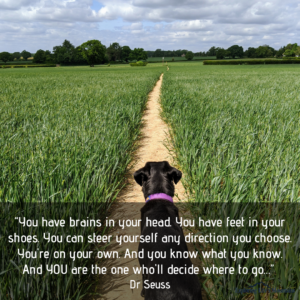
1. Stop waiting for your life to start

The starting gun went off the day you were born and each day you only get to live once – yes it’s true! [Spoiler Alert!] And even from the film It’s About Time, where they can travel in time, Tim learns a valuable life lesson, as he follows his Dad’s advice to travel back and live every day again, almost the same, ‘The first time with all the tensions and worries that stop us noticing how sweet the world can be, but the second time noticing…’ Tim does this but realises that he doesn’t need to do this in order to be fully present, he just needs to have the right presence of mind the first time: ‘And in the end, I think I’ve learned the final lesson from my travels in time; and I’ve even gone one step further than my Father did. The truth is I now don’t travel back at all, not even for the day. I just try to live every day as if I’ve deliberately come back to this one day, to enjoy it, as if it was the full final day of my extraordinary, ordinary life.’

Very often. we spend too much time anticipating/worrying about the future or looking in the rearview mirror at our past. It is not time that needs to slow down but our own brain.
In South Korea, at the Hyonwon Healing Centre, you can go on fake funeral trips to help you evaluate your life priorities. You write your own funeral service, you lie down in your coffin in the darkness to reflect. This is to help re-evaluate what is most important. For many it is family and friends, they resolve to show more love and kindness to those they care about. Take time to work on the things that really matter to you.
2. Choose good health not a diet

We are all becoming much more aware of how our mind and body health is directly linked. This is demonstrated when you get ill with something like flu that affects you physically. You will have probably noticed how it affected your thinking and also your emotions… Successful people realise this and know that improved physical fitness and wellbeing allows them to think better and be more productive.
There is a growing ‘anti-diet’ movement. You may have seen recent adverts asking you not to start a diet as a new years resolution. The anti-diet movement is not anti-good health! They are asking you to think differently about how you think about achieving good health. Encouraging us all to move to a better and permanent lifestyle rather than a quick fix so we can go back to bad habits. Yes, in general, we all need to ‘move more and eat less’ and there are lifestyle changes that will help. Choosing a diet is often us refusing to face the fact that we need to make more fundamental changes. It could be that we need to take more time in both meal preparation and consumption: Cooking from basic ingredients and then taking time to eat at mealtimes. It could be that we need to build into our everyday more time when we are moving, taking the stairs, walking, cycling and less sitting.
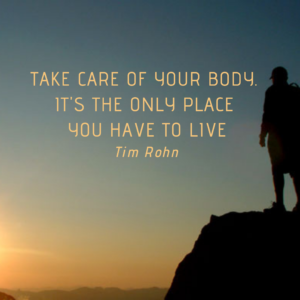
You’ll find this podcast helpful, all about why our brains find it hard to choose exercise and healthy choices and how we can improve: Dr Chatterjee interviews David Lieberman – Why you are not lazy.
3. Realise negative talking & feelings about others damages you
Firstly, it helps to realise how often we jump to wrong conclusions about a situation, thinking we have all the facts and that our perspective holds the truth. This can lead to us being easily upset by the actions/inactions of others. I remember these wise words from a talk that said ‘When we judge ourselves we know our inner intentions as well as our actions, when we judge others, we can only know their outward actions.’ I have seen on many occasions how easy it is for us to jump to the wrong conclusion.
What Susie says of Sally says more about Susie than of Sally.
So if we are not so great ourselves at perceiving what is actually happening in the lives of others, we need to be careful how we perceive others’ actions and also how we talk about them. The challenge that faces us is that science has shown that we ‘enjoy’ gossip and that it can trigger the part of the brain which acts as the reward centre, giving us satisfaction. No wonder there are so many magazines and papers full of celebrity gossip. We generally gossip because it makes us feel superior, or we do it out of boredom or to be part of the group.
It is natural to be curious about the lives of others and we enjoy reading a biography of someone’s life – look at the bestseller list! The difference is that these biographies usually share the complexity of that person’s life, their character and challenges. Well most of them do…
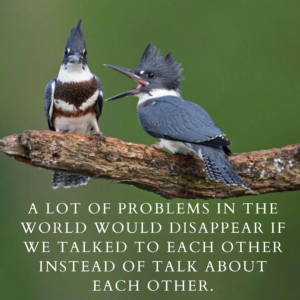
Start by avoiding being involved in gossip. Kindly let others know you’d rather not by saying something like ‘I’d rather hear about what you have been up to.’
The next step is to practice trying to see the other’s point of view, and trying to figure out a kinder scenario whenever you think badly about someone.
Need help seeing the positive in others? This article I wrote last year might be a good place to help.
4. Stop wishing you had someone else’s life

Over 30 years ago, newly married, we were reading a motivational book and a chapter which advised us to ‘Stop saying – It will be alright when…’ After reading this we decided we would give it a go, and correct each other whenever we tried to say it to explain a current dilemma. I believe that this one habit has been a great help to us and here is why.
The problem is that when we say ‘It will be alright when’ we are saying that life will be alright as long as the circumstances were different. That there are going to be big challenges in life that you are going to have to wait until they are over. Usually, this is not the case; we don’t need a new job, new relationship, new house or what our friends have, in order to be happy.
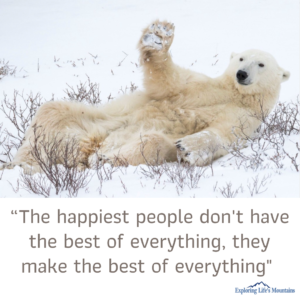
If you think this is an area you struggle with and many people do, I would recommend practising being more grateful. It has been proven that those who practice gratitude, such as keeping a daily gratitude journal, are more likely to be satisfied and fulfilled in life. You may not have what you think is your dream job, but you can make the most of your situation by being proactive and stop being a victim.
Read this article I wrote at the beginning of last year on finding happiness.
5. Stop saying yes just to please others
I am sure you will be able to remember a recent time when someone asked you to do something and you found yourself saying yes when inside you were saying no. By not allowing your true feelings to be heard, you can allow resentment to build.
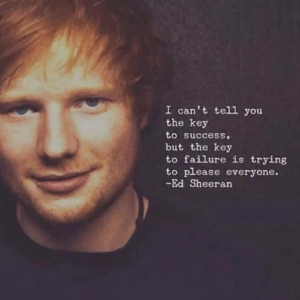
I am not telling you it’s not good to challenge yourself and that you should say no to anything that you feel uncomfortable about. There are plenty of occasions when we should not refuse, when perhaps we feel demotivated, lazy or overcome by irrational fear. But there are other times when we need to be stronger about our personal goals and convictions and not be afraid to disappoint others because our own goals do not align.
Beware of trying to elicit praise from others and being dependant on praise to feel good about yourself. This can be deeply embedded in us from childhood and if we allow this to determine all our choices, it can be very damaging?

A good thing to do each new year might be spending some time learning more about who you are and what your values/priorities are. This will strengthen willpower and the clarity will be empowering.
This article I wrote just over a year ago talks about how we can be more self-aware
Let me close by asking you that question often not asked for fear of the answer: How are you doing on your new year’s resolutions? I hope I have made you think a bit more about what those resolutions could be – and I wish you much happiness and success this year.

